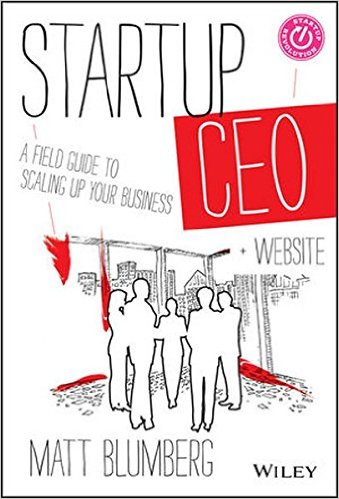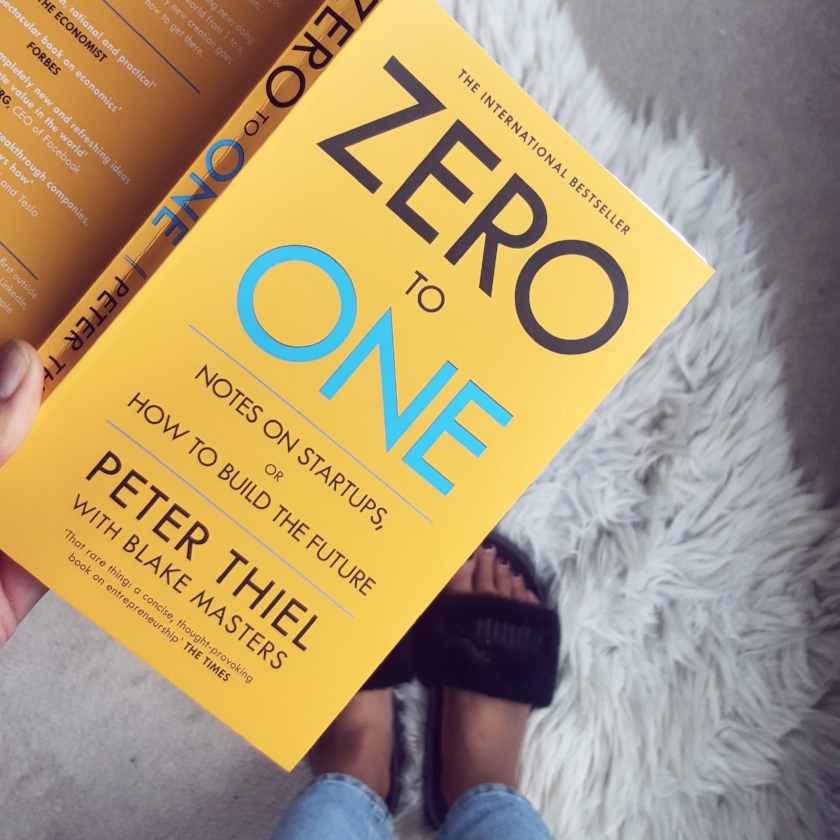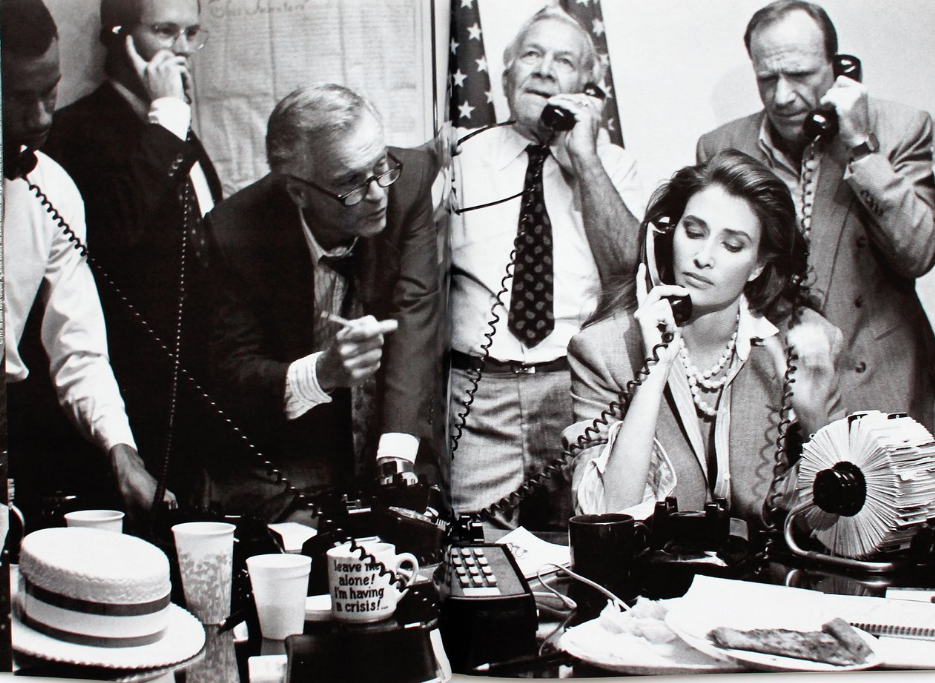FGC Book Club | Vol. 1

Sharmadean Reid, founder of WAH London and FutureGirlCorp, talks us through her 5 must-read books for any CEO at the beginning stages of their business or those looking to take things to the next level.
1. Start Up CEO: A Field Guide to Scaling Your Business by Matt Blumberg
This was the first book that I read on last year’s journey and it was an incredible entry point for how to build and run a tech company. The author breaks it down into such amazing categories; very much how I think about business. He starts with vision, then hiring, then finance and he goes through all the motions. I love that he talks about personal development too as we [FGC] talk about how you have to look after yourself as a CEO and really make sure that you’re capable of doing the huge job at hand. I genuinely love the format of the book and would like to write one similar but from the female perspective.
Key Takeaway… What I love is that it’s really actionable. Matt does this exercise, where he’s gets you to question “why do we exist, what do we do, how do we behave?”. I did that with my own staff and it was a brilliant exercise to figure out what our company stands for and how we build our culture and mission.
Read This If… You’re at the starting point of your business. You’ve got your idea and maybe you’ve incorporated your company, you’re about to hire your first person and you’re just literally at the beginning.
2. Zero to One: Notes on Startups, or How to Build the Future by Peter Thiel
This was the second book I read. Peter Thiel was one of the original investors in Facebook, who then became a billionaire. Also, he was one of the original cofounders of PayPal and he’s part of what people call the PayPal Mafia because they’ve gone on to be so successful in other businesses. This book began because he was lecturing at Stanford University and one of the students wrote such detailed notes on his lectures that they decided to turn it into a book. The book focuses on how you create in the future and not just replicate. If you are replicating a business, you are not going from 0 to 1 but from 0 to 0.01.
Key Takeaway… Do not do anything unless it’s 10 x better than what’s currently out there. It can’t be a little better or a little more convenient or a bit more innovative. It has to be mind-blowing! It really helped me figure out the direction I wanted to go in the business and the fact that I want to build beauty booking software because I know I can make that ten times better than what’s already in the market.
Read This If… You’re starting out and you’re not sure whether your idea is good enough. This will help with validating it.
3. Good Strategy Bad Strategy by Richard Rumelt
I did not want this book to end. It’s very well written and so interesting. You learn a lot and Richard talks about everything from Hannibal winning the war against the Romans to how modern day companies win. It was really clear about bigger, high-level thinking.
Key Takeaway… You never truly know what’s happening in someone else’s business. You don’t know what someone’s strategy or end goal is. A company’s action might initially look like a loss-making decision but you don’t know the mechanics behind it and how it might catapult another area of the business. Also in the reverse, when something might look good or successful, you don’t know whether it actually is a bad strategy. At first, it might have looked like WAH were killing it, doing pop ups all over the world but actually that was a bad strategy because we spread ourselves way too thin.
Read This If … You have been running your company for a couple of years but are not yet sure what’s creating the most value within it and what long term strategy to pursue. Maybe you’ve been trying lots of different things and thinking “which one is gonna work to take this company to scale?”.
4. The Lean Startup by Eric Ries
This is a really famous book about building software in an agile way. What that means is that most people have an idea and then they build it. They put it out to the world, realise it’s not right but then can’t change it because they’ve already built it. The Lean Startup is about how to strip everything back and do the bare bones of your idea first, which is called an MVP: a minimum viable product. You then put that out to the world, see what everyone thinks and get feedback.
Key Takeaway… Feedback loops! I love this book because everything that I care about is what the customer wants. We [WAH] should be constantly listening to the customers, our staff and what the beauty industry as a whole wants. I’m a big believer in regular iterations, constant development and listening to customer feedback.
Read This If… You’re about to build an app or a piece of technology. Whatever business you’re launching, you should apply this move fast method. When it comes to decision making, do it fast! Test it and if it doesn’t work, make another decision. In corporations, that can’t happen because there are so many people at different layers involved in the decision making process. So make use of the time that you can make these decisions quickly.
5. Crossing the Chasm by Geoffrey Moore
I just finished and I bloody love this book! It’s about how to market high technology products to mass consumers. Even if you’re not running a tech company, the reason I like this book so much is because it’s all about marketing. It’s about targeting early adopters and influencers first but then there’s a big gap or ‘chasm’ to cross in order to become mainstream. When I read that, I was really thinking about when WAH started and we were just doing cool, hipster girls in Dalston but we quickly made it mainstream. So then everyone started doing their nails similar to these cool girls in Dalston.
Key Takeaway… This book is really good at planning your roadmap. You can plot out how to change your strategy to appeal to different types of customers because what is repeated in the book is that early adopters have a different reason for buying than your mainstream audience, such as pragmatists. Pragmatists buy once they know everyone is using it but early adopters want to be the first to use it. Your early adopters are really good when it comes to testing your product. Let’s say you’ve built your MVP, as per The Lean Startup, you then put it to the early adopters who like trying new things, are happy to give you feedback and don’t mind if it’s got bugs because they see the value in the process. By the time you get to pragmatists, you’ve only got one chance and if it doesn’t work, they are never going to download or buy it again. I truly believe in whole product. What that would refer to now is an ecosystem. It talks about the fact that you have to create an ecosystem around you to get pragmatists trusting that product e.g. make sure you have partners on board. If you haven’t developed every aspect of what it means to be a proper company, no one is going to trust you at that mainstream level. So the whole product and building an ecosystem is really important.
Read This If… You’ve launched and want to get bigger. You’ve had really great traction, quite a few, cool people are using your product and now you want to take it national or global. You’re thinking, "how can I make 100,000 people or a million people use it and not just my 10,000 friends?".
...And now?
Now I’m reading Chaos Monkeys by Antonio García Martinez, which is about the guy who worked in the Facebook Ad department after selling his own company to Twitter. It's a thrilling expose on start up life, super fast paced and feels like a fiction even though it’s fact.










